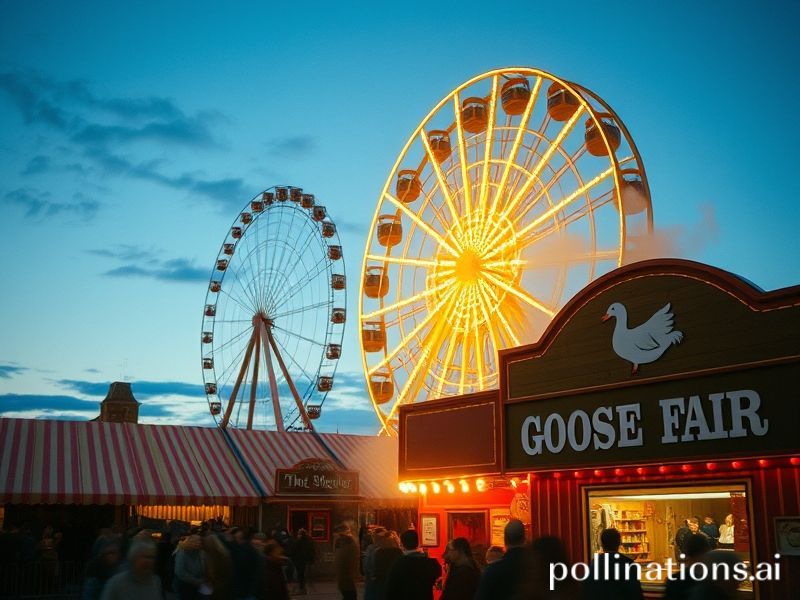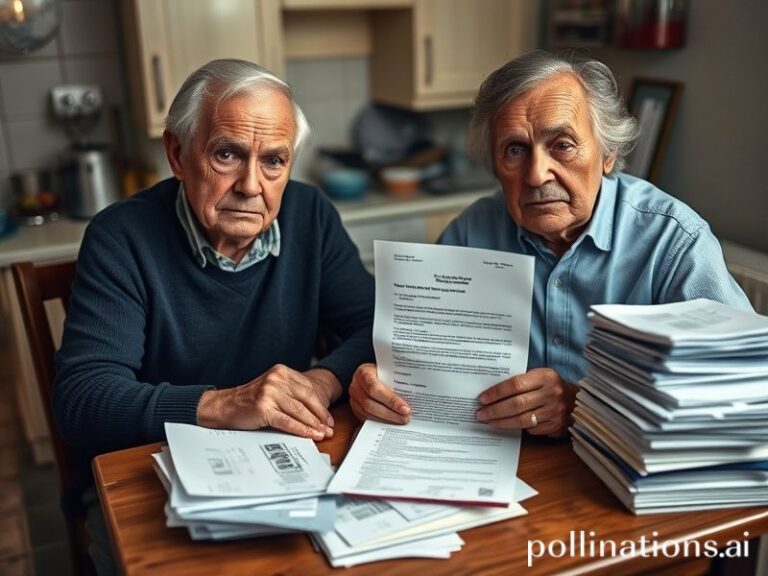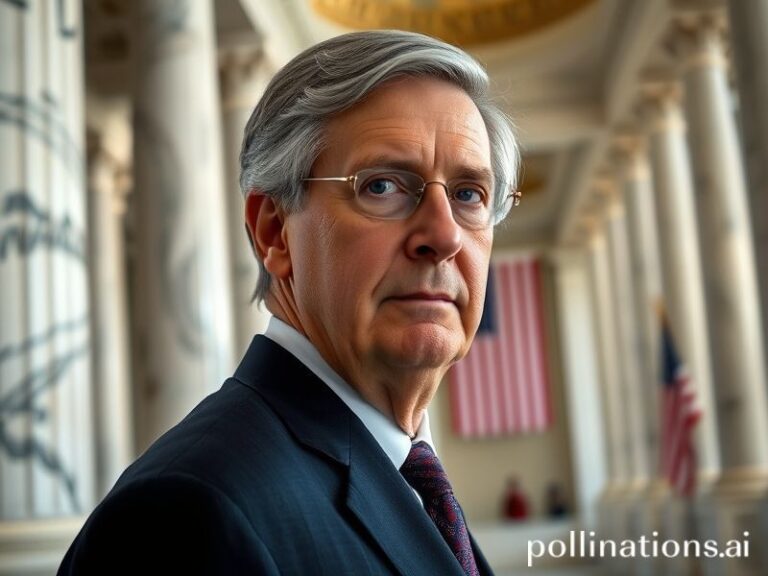Global Supply Chain on a Stick: Inside the 1,000-Year Goose Fair
NOTTINGHAM, England — Every October, when the northern hemisphere tilts reluctantly into winter and daylight becomes a rationed commodity, the city of Nottingham unclenches its civic jaw long enough to regurgitate the Goose Fair. One thousand odd years young, the event began as a medieval poultry pop-up where farmers hawked surplus geese before Michaelmas rent day. Today, it is a 700-yard neon colonoscopy that consumes the Forest Recreation Ground and, arguably, the last functioning ritual in Brexit Britain that doesn’t end in a parliamentary fistfight.
For the uninitiated, Goose Fair looks like a fever dream designed by an over-caffeinated toddler who just discovered LEDs. Imagine a county-wide power outage, then add sugar, diesel, and the persistent whine of teenage romance. From the sky it’s a bioluminescent reef; from the ground it’s a pop-up petri dish where the global supply chain meets the British gastrointestinal tract. There are German beer halls, Italian espresso bars, and a Chinese-manufactured ride called “The Afterburner” whose safety certificate is best read in low light. If you listen carefully you can hear the World Trade Organization humming the theme from Stranger Things.
Internationally speaking, Goose Fair is a miniature WTO summit without the canapés or the tear gas. Each ride is a tariff-free import, each candy floss a pink, spun subsidy. The dodgem cars alone contain more copper than a Congolese mine, and the helium balloons trace back to a Qatari processing plant that doubles as a geopolitical bargaining chip. In an era when container ships queue like depressed elephants outside Los Angeles, the fair’s overnight erection is a triumph of just-in-time logistics and questionable insurance. It is globalisation on a sugar high, the supply chain cosplaying as entertainment.
The crowd is equally multinational. Kurdish teenagers flirt in TikTok-ready phonetics, Lithuanian grandmothers gamble on bingo with the seriousness of hedge-fund managers, and a lone Canadian exchange student wonders why no one has yet apologised for the 14-euro hot dog. Everyone is united by the democratic certainty that they will overpay for something that will make them mildly nauseous – a metaphor the British electorate has been road-testing since 2016.
Security, naturally, is handled by men whose high-vis jackets scream “private contractor” in twelve languages. They patrol with the swagger of UN peacekeepers who know their mandate ends at the candy-corn stand. Meanwhile, CCTV cameras the size of space telescopes orbit overhead, feeding facial recognition software generously funded by a Home Office that can’t find its own USB stick. Somewhere in Beijing, a bored intern is probably tagging a Nottingham teenager’s acne pattern as “strategic data.”
The environmental footprint? Let’s call it a goose step. Diesel generators throb like the heart of a dying star, pushing carbon into the air with the casual efficiency of a Saudi oil minister. Yet the council has installed four recycling bins, each labeled “Mixed Plastics” in Comic Sans, as if font choice can absolve original sin. Greta Thunberg’s disembodied voice should really pipe up over the tannoy: “You cannot bargain with physics, but you can win a goldfish.”
By Sunday night the fair will vanish faster than a cryptocurrency exchange, leaving only flattened grass and the lingering smell of regret. Locals will wake to find the Forest Recreation Ground restored to its usual purpose: dogging and despair. The rides will be packed onto lorries bound for Dubai Winter Wonderland, the goldfish will be flushed with the solemnity of a state funeral, and the city council will issue a press release praising “record footfall” while quietly invoicing the NHS for a spike in gastroenteritis.
Still, for five brief days, Goose Fair proves that the world can still cooperate when the stakes are low enough and the profit margins high. It is a carnival mirror held up to late capitalism: distorted, gaudy, slightly nauseating, yet weirdly comforting in its predictability. And if the apocalypse ever arrives, you’ll probably find it here first – sold at a 40% markup, served with a side of mushy peas.







